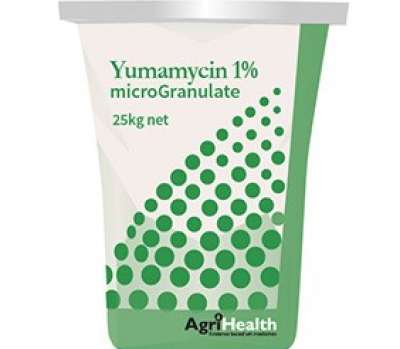Coccidiosis in Poultry
Coccidiosis is a parasitic disease of the intestinal tract of animals caused by coccidian protozoa. The disease spreads from one animal to another by contact with infected faeces or ingestion of infected tissue, poultry, dust or surfaces that have come into contact with poultry faeces. Diarrhoea, which may become bloody in severe cases, is the primary symptom, though loss of live performance and increased prevalence of intestinal microbial imbalance is common. Most animals infected with coccidia are asymptomatic, but young or immunocompromised animals may suffer severe symptoms and death. Coccidiosis occurs wherever there are poultry and is considered the most economically important intestinal disease affecting global poultry production.
Coccidiosis in poultry is typically prevented via administering an oral coccidiosis vaccine such as Advent to day old chicks, or.by adding in-feed ionophore coccidiostats such as Sacox 120, Monotec 200, or Yumamycin 1% or alternatively synthetic coccidiocides such as Coxiril 0.5%, Coxipol 25%, Stenorol 0.6% or NicarbMax. It is important each animal receives an adequate dose of oral coccidiosis vaccine or coccidiostat, as animals that do not consume sufficient vaccine or treated feed may not be protected. If a flock is clinically affected, a treatment product such as ToltraVet Poultry 2.5% may be added to the drinking water and used as directed under veterinary supervision. Contact your vet for advice if animals appear clinically infected.
Poultry Coccidiosis Lesion Scoring Guide
Poultry Footpad Scoring Guide
TB AC10 Association between Eimeria maxima and E. acervulina
Coccidiosis in Poultry
Coccidiosis is a parasitic disease of the intestinal tract of animals caused by coccidian protozoa. The disease spreads from one animal to another by contact with infected faeces or ingestion of infected tissue, poultry, dust or surfaces that have come into contact with poultry faeces. Diarrhoea, which may become bloody in severe cases, is the primary symptom, though loss of live performance and increased prevalence of intestinal microbial imbalance is common. Most animals infected with coccidia are asymptomatic, but young or immunocompromised animals may suffer severe symptoms and death. Coccidiosis occurs wherever there are poultry and is considered the most economically important intestinal disease affecting global poultry production.
Coccidiosis in poultry is typically prevented via administering an oral coccidiosis vaccine such as Advent to day old chicks, or.by adding in-feed ionophore coccidiostats such as Sacox 120, Monotec 200, or Yumamycin 1% or alternatively synthetic coccidiocides such as Coxiril 0.5%, Coxipol 25%, Stenorol 0.6% or NicarbMax. It is important each animal receives an adequate dose of oral coccidiosis vaccine or coccidiostat, as animals that do not consume sufficient vaccine or treated feed may not be protected. If a flock is clinically affected, a treatment product such as ToltraVet Poultry 2.5% may be added to the drinking water and used as directed under veterinary supervision. Contact your vet for advice if animals appear clinically infected.
Poultry Coccidiosis Lesion Scoring Guide
Poultry Footpad Scoring Guide
TB AC10 Association between Eimeria maxima and E. acervulina
Advent
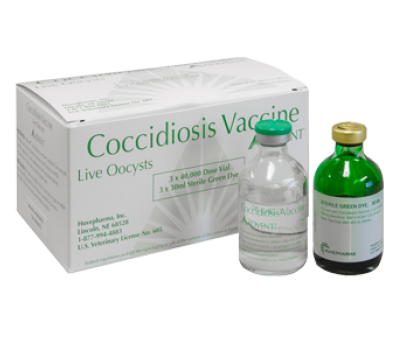
AviApp

Coxipol 25% microGranulate
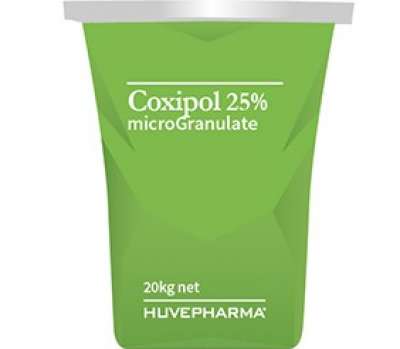
Coxiril 0.5% microGranulate
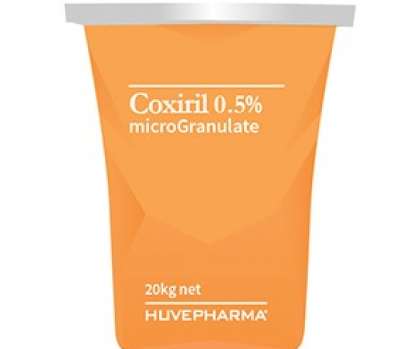
Eimeriavax 4m
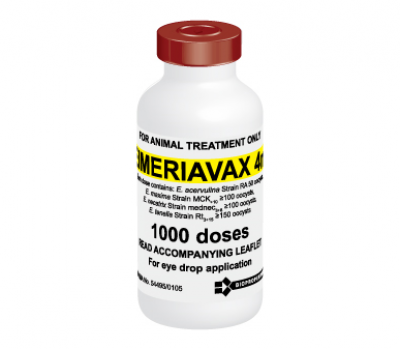
Monotec 200 microGranulate Premix
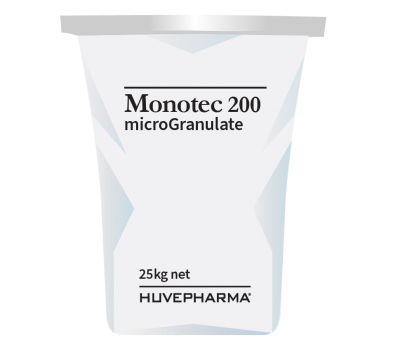
NicarbMax 100% Powder

Sacox 120 microGranulate

ToltraVet Poultry 2.5%
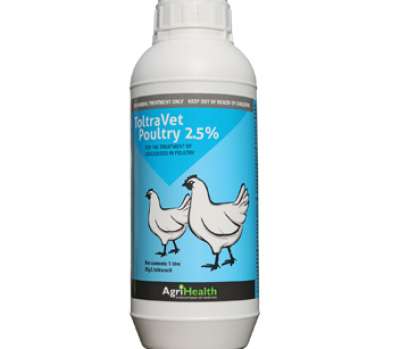
Yumamycin 1% microGranulate
